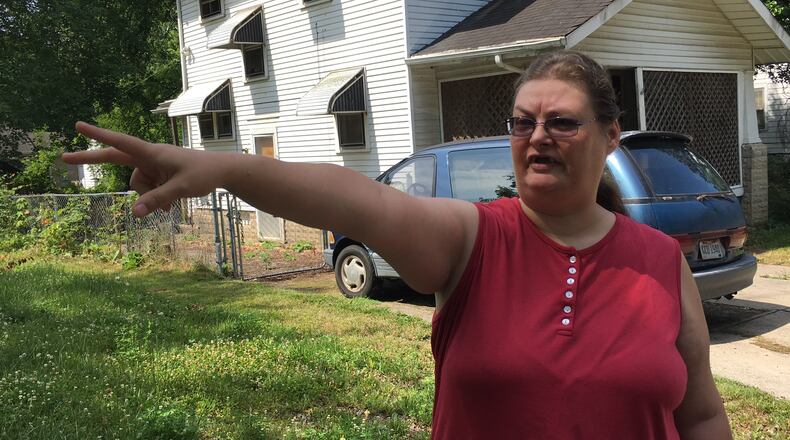REPORT: Thousands of area rental properties get tax break meant for homeowners
“It’s wrong any time somebody’s getting a tax break they don’t deserve and others do deserve,” Keith said in an interview Tuesday. “I’ve directed my staff to do a thorough and complete review of this program and the rental registration program and how those two programs interact.”
“If there’s things we need to do to improve our processes to make sure that only qualified people are getting those reductions, then we’re going to identify those steps and we’re going to be taking corrective action.”
West Dayton resident Kelly Livers said she is very interested to see what Keith's review finds. She said she complained about the issue to the county auditor's office but says she wasn't taken seriously until she contacted the I-Team.
“Somebody isn’t doing their job,” she said. “We’re held accountable to pay our taxes, they’re held accountable to do the bookkeeping correctly.”
Livers said while contesting the tax value of her home she started reviewing neighboring property records, and found 90 vacant, rental or business properties getting owner-occupied tax credits in the few blocks around her property.
She pointed some of them out to a reporter Tuesday, and several had overgrown weeds jutting out of the foundation and boards covering doors and windows.
“That one. That one. That one. This one. This one. This one. This one, and those two over there are all vacant, and the one across the street, are all vacant homes,” she said. “That’s a vacant home that’s been vacant for at least three years, had all the utilities shut off a long time ago.”
“If (the county) can’t keep their accounting straight on the vacancies and who’s occupying them, then how are they keeping the rest of it straight?” she said.
Auditor’s office officials say some of these mistakes may be innocent: Someone buying a rental property or renting out their home and being unaware of the rules, or someone who lives in part of a commercial or rental property.
The credit — a 2.5 percent rollback on property taxes created prior to 2012 — is applied when property changes hands and a new owner notes on the conveyance form that the property is a primary residence.
The I-Team analysis did not include vacant homes, which auditor’s office officials say pose a unique challenge because they may not be reflected in the tax roll.
Ron Alban of Kettering said the review shouldn’t stop with the county auditor’s office. The findings should be referred to the county prosecutor’s office, and even the Ohio Auditor of State to look for the same pattern in other counties, he said.
“We live in a society based upon rule of law, and what the Dayton Daily News has uncovered is apparently many erroneous forms have been filed, with the possibility some of them have even perhaps been fraudulently filed,” he said.
“To the extent the facts show back taxes are owed, I would think it would be appropriate to try to collect those back taxes.”
Doug Trout, director of real estate in Keith’s office, said there is a mechanism for that.
“If we determine that individuals are receiving owner-occupancy and they are not residing there, we do have the ability to go back and recoup that charge,” he said. “We haven’t done that, but we have that ability.”
MORE FROM THE I-TEAM:
About the Author

